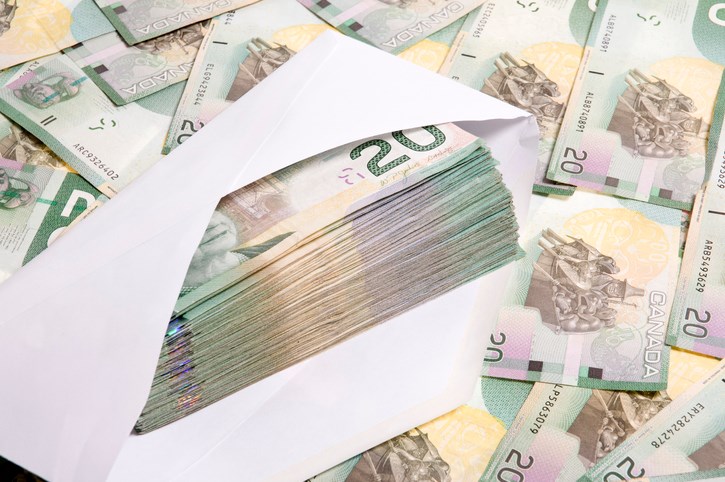As low-ranking B.C. casino investigators raised concerns about money laundering originating from China, senior staff at the B.C. Lottery Corporation initially chalked up big cash buy-ins to supposed cultural norms, the Commission of Inquiry into Money Laundering in B.C. heard Monday.
Mike Hiller, a former BCLC investigator, said he had used some of his knowledge as a former police officer to come to the conclusion that Chinese high rollers routinely dumping bags of $20 bills, bundled by elastic bands, at casino cages was a red flag for money laundering.
Hiller started working for BCLC in 2009 after 28 years with the RCMP, including three years on an Asian crime unit specializing in heroin trafficking, he told commission counsel Patrick McGowan.
“My theory was these VIP players were provided cash by organized crime and they were simply being used as a vehicle to get rid of this money.
“I also believed the higher level VIP players who were borrowing hundreds of thousands of dollars were repaying it to the organization in China,” Hiller testified.
As like other BCLC investigators testifying at the inquiry, Hiller said there was no direction from superiors to interview these suspicious high rollers, and their job was only to observe, record and report.
BCLC is the Crown agency that licenses gaming venues, promotes gambling and disperses net revenue to the provincial government. The commission has previously heard how BCLC managers and executives did not consider it to be money laundering if VIP gamblers lost.
Yet Hiller said he initially relayed his concerns to his superiors but heard nothing back from them for the first two years.
“There was no doubt they knew my viewpoint. After that it comes to a point you sound like a broken record and I laid off those concerns.”
That is until 2014, when Hiller said internal BCLC newsletters repeatedly downplayed money laundering.
Hiller explained he had previously been advised by a “confident source” that loan sharks were operating in Metro Vancouver to service wealthy Chinese nationals who could not get their money out of the country. And so, local, unregistered and illegal money service businesses (MSB) would bundle up drug cash and provide it to gamblers, who would repay the loan to a connected MSB in Asia.
“I don’t believe they had this access [to cash] in Canada. They were mainly Chinese nationals. They were merely obtaining the proceeds of crime from criminals,” added Hiller.
But BCLC’s then vice-president of corporate security and compliance (now COO) Brad Demarais first posted a May 2013 newsletter titled ‘Money Laundering? Not Really,’ that Hiller said expressed alternative explanations for vast amounts of cash entering casinos, including how, “some cultural groups,” such as Asians, or Chinese, “favour cash.”
Another alternative came from a 2012 presentation by journalist Jonathan Manthorpe to BCLC about cash being smuggled into Canada by Chinese nationals at the airport. Hiller suggested BCLC took this to mean that the large buy-ins do not necessarily have a criminal element and “for cultural reasons many Chinese nationals prefer to deal in cash.”
Hiller said following another newsletter in 2014 with similar overtones, he wrote a report to his bosses, raising the matter of underground banks, or MSBs. Part of his report was read aloud by McGowan:
“Considering that we should suspect that most high-level Asian cash buy-ins are coming from the underground economy, does it not make the VIP players a vehicle for laundering money? Especially since it is a likely scenario that the underground economy includes the criminal element who are trying to launder their money and it is my understanding that most Asian players likely have an agreement to pay the money in Asia where they can actually access their wealth. Supplying our VIP players with cash works to the benefit of the underground economy because they can rid themselves of bundles of cash and in doing so have moved their cash offshore, when repayment occurs.”
Hiller said no superior got back him.
Using drug cash from underground banks connected to China to buy assets and/or gamble is known in academic circles as the ‘Vancouver Model,’ the commission heard from criminologist Stephen Schneider last May.
Schneider acknowledged there is some debate as to whether the source of funds from China is criminal — a key tenet of money laundering.
Some money from China may be legitimate while some may be sourced from corruption and outright crime, he said.
“You can argue whether capital flight has been laundered in and of itself based on semantics of the source.” More so, “the question is whether the capital flight from China is contributing to further crime,” which it is, noted Schneider.
The hearing continues tomorrow, online at CullenCommission.ca



